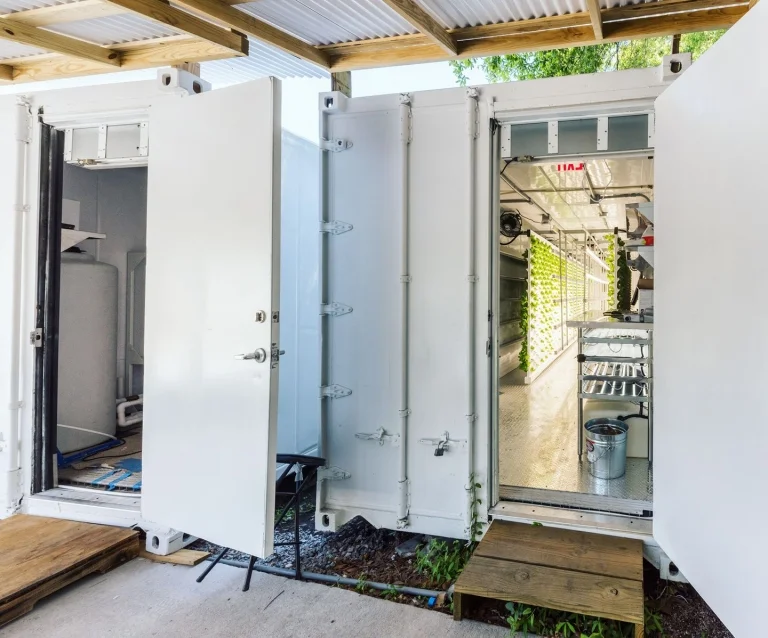DD2 Participates In Farm-to School Pilot Program
DD2 Participates In Farm-to School Pilot Program
Inside the container, plants do not have to contend with weather, pests or soil depletion and can grow year round
A new container farm is providing leafy greens to Ashley Ridge High.
The container farm is the result of a partnership working to make sure healthy food is going into students’ mouths – not in the trashcan.
Dorchester District Two, Ashley Ridge High’s agriculture program, Vertical Roots, Tiger Corner Containers and Boxcar Central have joined forces to start a farm-to-school program in the district.
Deb Filomarino, director of nutrition and food services for the district, said the partnership started with Olivia Thompson, public health professor at the College of Charleston. Through Thompson, Filomarino was introduced to Stefanie Swackhamer, general manager of Tiger Corner Farms, and a partnership grew to start the farm-to-school program.
Boxcar, Vertical Roots and Tiger Corner Farms are sister companies. The farm-to-school implementation started at the beginning of the school year.
All the partners celebrated with a kickoff party Oct. 3. Filomarino said she is “over the moon” with the turnout and the number of students and community members who participated.
Thompson said they are going to start collecting data now and look at production costs, the economic impact at schools and a nutritional analysis.
“Ultimately, how do we get the food into students' mouth and not in the trash cans?” she said.
Tiger Corner Containers manufactures the container farm, which is just that – a mobile aeroponic farm system customized with an innovative cloud-based control system that allows growers 24-hour, 365-day monitoring of each plant from seed to sale and the ability to adjust the farm system setting from any computer or mobile device. Tiger Corner Farms Manufacturing is locally-owned and operated in Summerville.
Inside the container, plants do not have to contend with weather, pests or soil depletion and can grow year-round.
Right now the container grows 4,450 heads of lettuce a week. Vertical Roots is growing the produce inside. Boxcar Central builds the technology system that goes into the container.
Ashley Ridge provides the lettuce in the school lunches and also provides it to five other schools; Filomarino said they are reaching potentially 12,000 students.
“This is a model for other districts to adopt,” she said.
Vertical Roots officials said they use no pesticides in the farming, and the whole system uses about eight gallons of water a day. Co-owner Matt Daniels said they can grow anything within reason – right now the container has the proper setup for leafy greens, and every aspect of the indoor environment is controlled by the technology Boxcar set up.
The lettuce is harvested on Monday nights.
The kickoff party consisted of tours of the container farm and catering by GoGo Greens, which offered samplings of two types of salad, a kale smoothie and chocolate pudding – all made with sustainable, organic ingredients.
Eleventh-graders Dalton Mitchum and Colton Matthew try out the kale smoothie.
Ashley Ridge students were also invited to check out the container farm and food samplings – the kale smoothie and chocolate pudding were a big hit; the latter was made from cacao powder, strawberry, avocado and agave.
Eleventh-grade horticulture student Amandadell Mills tried out the pudding.
“It’s actually pretty good. I don’t like avocado but you can’t really taste it,” she said.
Ben Gibson, one of the agriculture teachers at the school, called the partnership an “excellent opportunity” for the school to bring in an outside horticulture business whose goals are similar to the school’s education goals.
Gibson said they are hoping one day they can provide these groups with students who want to work in the business.
“It’s another way to show our kids, 'Hey, this is also horticulture,'” he said.



